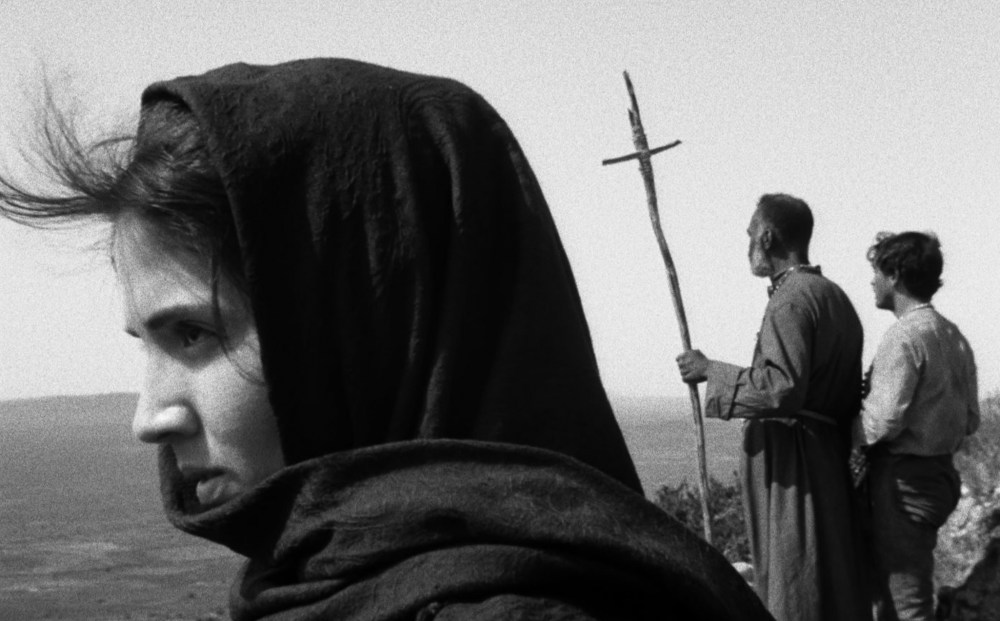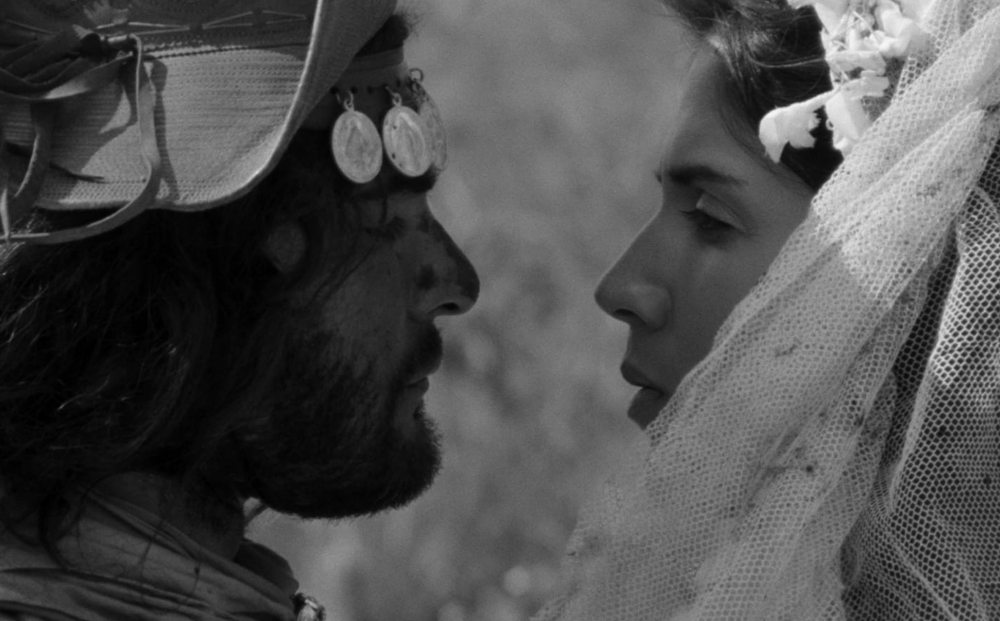Glauber Rocha’s
BLACK GOD, WHITE DEVIL
MUST END THURSDAY, NOVEMBER 30
12:45 5:45
NEW 4K RESTORATION
Brazil, 1964.
Directed by Glauber Rocha
Starring Geraldo Del Rey, Othon Bastos, Maurício do Valle, Yoná Magalhães
Approx. 120 min. DCP.
“This ecstatic panorama of furious visions and revolutionary dreams in the vast, violent landscape of rural Brazil, made by the twentyfour-year-old director, is one of the founding works of modern Brazilian cinema. Manuel (Geraldo Del Rey), a young cowherd, kills a wealthy rancher who cheated him, and flees home, along with his wife, to join a pilgrimage led by a self-proclaimed saint with a utopian, gory gospel. The Catholic Church and the government send a hired gun, Antonio das Mortes, to stop the procession — and the revolutionary bandit Corisco plans to stop Antonio. Rocha’s hectic drama is, in effect, a political Western that rages at Brazil’s governmental corruption and plutocratic oppression… [with] raw, grand, urgent images.” – Richard Brody, The New Yorker
New 4K restoration from Metropoles Productions, based on original 35mm materials preserved by the Cinemateca Brasileira. Restoration by CineColor Digital and JLS Studios.
With support from the Robert E. Appel Fund for Spanish and Portuguese Language Films
A JANUS FILMS RELEASE
Reviews
“ITALIAN NEO-REALISM INFECTED BY THE CUTTING OF EISENSTEIN AND THE AUDACITY OF THE FRENCH NEW WAVE.”
– Derek Malcolm, The Guardian
“Rocha, who wrote the script and most of the lyrics, consciously uses iconography from Eisenstein (POTEMKIN, QUE VIVA MEXICO), Buñuel (NAZARIN), and Godard (LES CARABINIERS) to create a mise-en-scene that’s decidedly European avant-garde, while he has the actors pose and speak in a deliriously theatrical manner derived from Brecht and Grotowski. The fusion of European and Afro-Brazilian elements—dialogue, exquisite black-and-white images, and music by Villa-Lobos—is startlingly original and poetical in conveying the hope and despair of the oppressed.”
— Ted Shen, Chicago Reader
“One of the most visually effective and artistic examples of the work of Glauber Rocha, a leading light among Cinema Novo's young directors.”
— A. H. Weiler, The New York Times



